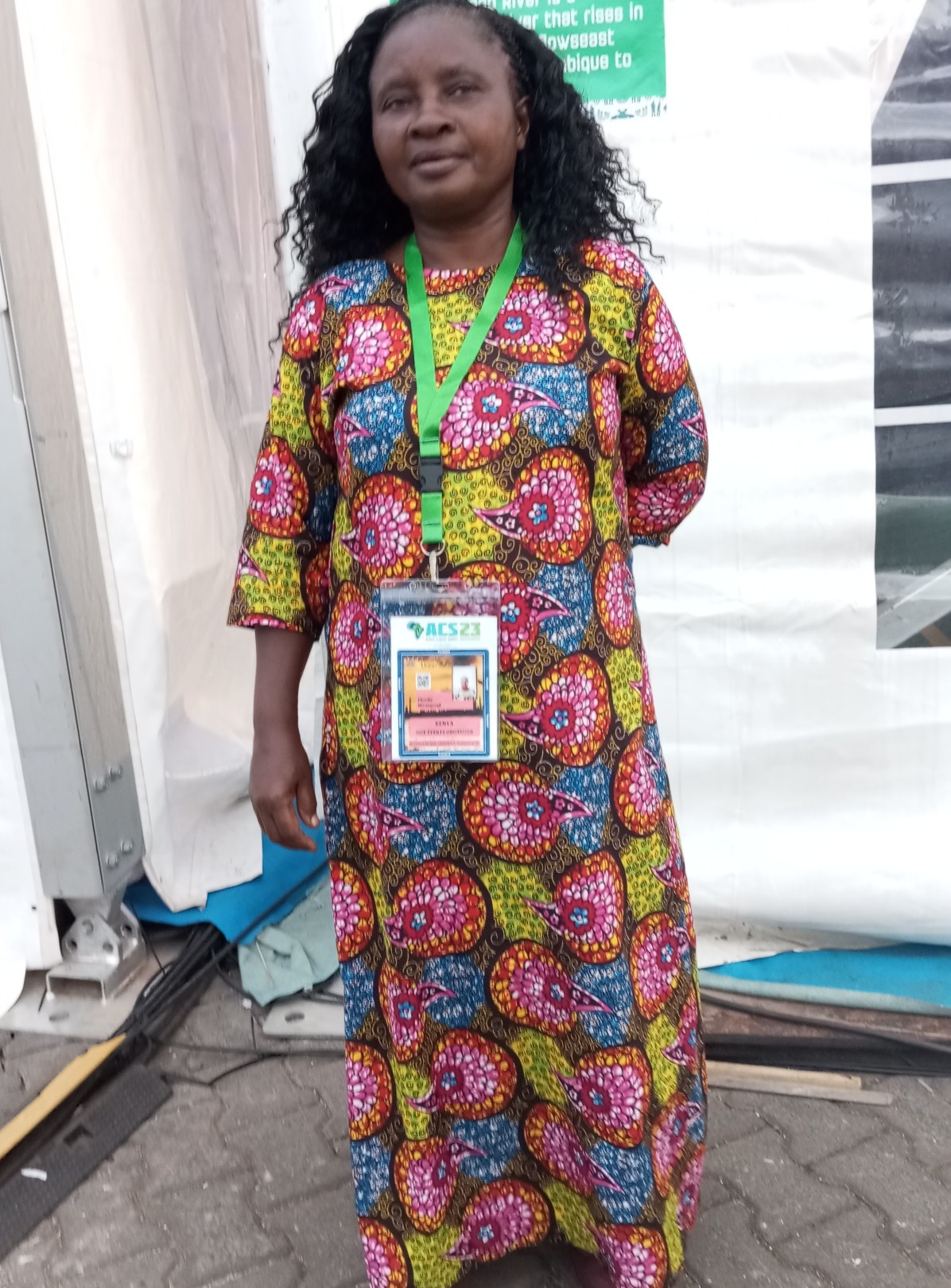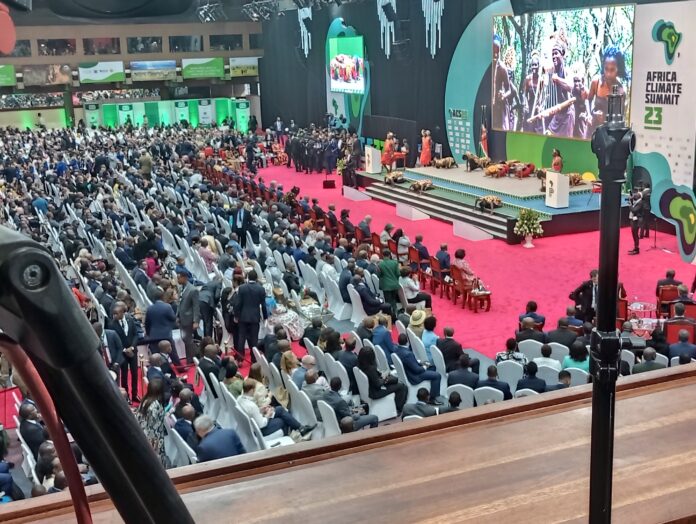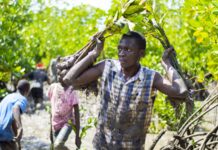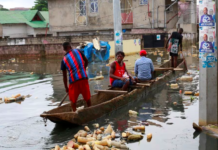By Lenah Bosibori
Nairobi, Kenya: Phoebe Mwangangi is a smallholder farmer from Makueni County, a semi-arid area that receives minimal rainfall.
Despite the minimal rainfall in the area, Mwangangi says that they are able to farm drought-tolerant crops like sorghum, millet and cowpeas through the use of new innovative techniques that are fit for their landscape.
“We are being assisted with innovative methods like deep tillage that is basically digging deep with minimum soil disturbance, this helps the turbulence to hold water when the rains fail,” said Mwangangi during an interview at the side event in the ongoing ACS.
Makueni County is one of the 47 counties in Kenya, located in the southeastern parts of the country.
Agriculture is a significant economic activity in the County, Livestock farming is also common.
Through different non-governmental organizations like Accelerating Impacts of CGIAR Climate Research for Africa (AICCRA), the County has been able to implement various agricultural and water conservation projects to address food security and water scarcity issues.
“We are also doing rainwater harvesting, we store it in the reservoirs so that we can supplement it when the rains are not enough,” adds Mwangangi.
Mwangangi was speaking in Nairobi during the Africa Climate Summit (ACS) taking place in Nairobi under the theme ‘Driving Green Growth and Climate Finance Solutions for Africa and the World’.
Mwangangi says that they started with 23 farmers and the number is growing as other farmers have seen the impacts of the innovations.
“We are extending the skills and the innovation to the community, since I am the community extension volunteer, I make sure that every farmer has the right information to ensure that the community is food secure,” adds Mwangangi.
She however says that some of the innovations are very expensive to smallerholder farmers as they require a lot of financial support.
“Some of the innovative practices like deep tillage need machines which are very expensive for our smallholder farmers,” adds Mwangangi.
According to her, they get help from sponsors who offer to divide the cost of deep tillage so that the farmer can benefit from the technology.

Ana Maria Loboguerrero the Director of AICCRA and Research Director for Climate Action at The Alliance of Biodiversity International and CIAT said that smallerholder farmers need innovations that are fit for purpose.
“We are using all the technologies that CGIAR has implemented from its different partners to address climate challenges and to make sure they are fit for purpose and tailored to specific local conditions that can benefit farmers,” said Loboguerrero.
Loboguerrero reiterates that many technologies have been implemented but not reaching the hands of farmers and therefore not benefiting them.
“When we started CGIAR, our aim was to reach 1.5 million farmers in Africa with climate-smart information, Currently we are at 3 million and the projection is five million before the end of the year,” adds Loboguerrero.
Ban Ki-Moon co-chair Ban Ki-Moon Centre for Global Citizens 8th United Nations Secretary-General urged all governments present during the ACS summit to work collaboratively towards the implementation of global tech solutions.
“I urge all governments to work collaboratively towards implementation of global tech solutions to transform agriculture,” said Ki-Moon during a side event at the summit.
He added that a significant increase in public grant financing towards building resilience and adaptive food systems offers strong returns on investment, addresses social issues, and reduces emissions by protecting biodiversity.
The climate summit that started on the 4th -6 6th in Nairobi brought together over 20 heads of state, United Nations delegates, civil society organizations, European Union representatives, and many more.
It provides an opportunity for African Union Member states and supporting partners to call for action against the devastating impact of climate change and global warming on several regions of the world and the Horn of Africa.














